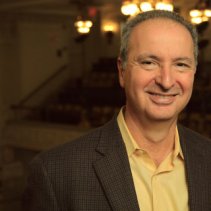This week in my Church’s Life Group (our housegroup), we watched another short video by Pete Scazzero, as part of his ‘Emotionally Healthy Spirituality’ study series.  This is a great series for developing maturity amongst Christians, and this week’s episode (the fourth in the series) was, in my opinion, the key part so far.
This is a great series for developing maturity amongst Christians, and this week’s episode (the fourth in the series) was, in my opinion, the key part so far.
In it, Pete was talking about ‘the Wall’ – also known as the ‘Dark Night of the Soul’; a subject I have written on many times before.
An important point that he raised was that 85% of Evangelicals don’t make it through the Wall and, one presumes, they either have to live with their doubts or ‘fall away’. But Pete maintains that the Dark Night is a healthy part of normal Christian growth – if it is handled correctly. I’m writing this piece today in order hopefully to encourage those going through the Dark Night. If that’s you, please know that you’re not on your own. If that’s not you, it still might help to read this as if/when you go through your own Dark Night, perhaps you might remember some of this, and therefore be encouraged too.
I mentioned earlier that I have written on the subject of the Dark Night before. And so, for the reference of anyone else who may be going through the Dark Night at the moment – or trying to get through ‘the Wall’, or even for members of my Life Group who may be reading this and want some more background, here’s a collation of all the articles written about my ‘Dark Night’, how to handle it (for the person themselves and for their friends) and/or what I learned while I was in there.
First, a piece on the warning of the Spirit about what He was about to do in my life:
Still Your Soul in Silence
And now the main piece itself that describes what it looks like:
The Dark Night of the Soul
Here’s a piece on how it affected me as a ‘religious’ person and how it brought me out of that state:
Blindsided by Grace
And a piece about how I used to burn out in ministry; another slant on the point about how the Spirit led me into the Dark Night:
All I Desire
Here’s my life testimony, showing where the Dark Night fitted in to God’s overall plan:
My Testimony
And then my first inkling that actually all I’d learned during the Dark Night was common to other believers as well:
The Shack
Pete said that the ‘precipitating event’ for each person’s Dark Night could be something like a life trauma – loss of a loved one; a scary medical diagnosis; loss of a job – or it could be church disillusionment, or indeed anything else including even good things. Maybe the birth of a child shakes up your foundations of faith; you realise how Father God feels about you because of the way you feel about your own child. It really could be anything. But usually there is a ‘trigger event’ of some sort.
And if you are in the Dark Night, remember that He is walking there with you. Don’t try to artificially ‘end’ the Dark Night; God will let you find your way out, all in His own good time. Although it might not feel like it, God is right there with you in this time. Remember that, “Even though I walk through the darkest valley, I will fear no evil, for you are with me; your rod and your staff, they comfort me” (Ps 23:4) – David, the man of God who wrote this, was clearly familiar with the concept. In fact I would say that it isn’t actually possible to find your own way out; you must trust God to guide you. For me, every time I ‘tried’ Church again, I was so repelled by it that I had to get out of there. As I’ve said before, every time I went into a Church, it reminded me of why I didn’t!
What is the result of the Dark Night? I would say that the rewards of going through the Night are more than worth the pain of it. The believer finds a new, deeper relationship with Jesus; more love, empathy and understanding for others; decreased ‘religiosity’; a new understanding of God’s ways; less concern with the opinions of others, especially on theological issues; and mainly a vast, vast freedom to be who God wants him to be, and a freedom to live life in the Spirit; a renewed sense of God’s completely unconditional love and what this means in practice – well, the list goes on. You can see some of the fruits of my Dark Night in my insights in this blog. I recommend you go to some of my earlier posts (mid-2014 onwards) for a taste of this sort of thing.
My personal Dark Night of the Soul lasted for for fifteen years; I often refer to it as my ‘wilderness experience’. One thing that I have found since then is that there is a tendency both to see yourself, and for others to see you, as having ‘attained’ a spiritual maturity ‘level’ that is higher than others, and there is a tendency for pride to creep in (on my part) and for some feelings of being on the wrong side of elitism on the part of other people. I’ve learned, though, that actually we are all on a spiritual journey as Christians, and I am no more superior to those who have not gone through a Dark Night than is an adult to a teenager. It’s all part of spiritual development and we’re all at different stages. Having a prideful attitude can and will hinder not only your own spiritual growth, but also that of others too.
Jeff Turner recently commented on Facebook on this subject, quoting Fr. Richard Rohr:
“Once you say ‘higher level’ (regarding one’s level of spirituality), you appeal to the ego, and all the wrong instincts in people.”
-Fr. Richard Rohr
“When you begin to refer to where you’re at on your journey as a “deeper place,” “higher level,” “another dimension,” or some other such thing, you create a space where pride, arrogance, and superiority can thrive in the name or spirituality. No, we’re journeying, and on this journey, mountains are laid low, and valleys exalted. Every place is an equal place for the sincere, it’s just that we are never all in the same place at the same time, and tend to assume wherever we’re at is the place to be.
“The place to be is wherever you are”.
Wise words indeed; thank you Jeff Turner.





8 thoughts on “Dark Night of the Soul – Revisited”